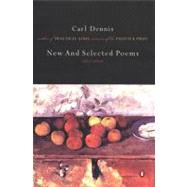
A Colleague Confesses
Now that we've gotten along as office mates
For three semesters, I don't mind letting you know,
In confidence, that the poems and stories we're teaching
Are less important to me than they are to you.
However beautiful in themselves, they don't uplift me
As meditation uplifted me when I was a disciple.
To be sure, I gave up the discipline after a year,
Unable, finally, to empty my mind enough
For the kind of higher harmony with the void
Enjoyed by the few who become enlightened.
Now, in my fall-back mode, I try to content myself
With working at harmony with the world.
I want to know what it's like to be other people
And am always practicing, weekdays with students
And colleagues, weekends with strangers.
Even in the car alone, on a Sunday drive,
I move my lips with the preachers on the radio
As I imagine what longing pushes them forward.
As for the satisfied, what right have I to judge them,
To declare they shouldn't be happy
With the raises they've earned or the holiday reservations
They've called in early enough to book the rooms
They covet, facing the ocean?
I wouldn't konw what to say if they asked me
Point-blank about the life I believe they're missing.
As for the books we're teaching,
I think I respond to their plots and characters
As fully as anyone, but I have to confess
I don't regard them as throwing much light
On the world beyone the page. True to experience,
Now and then, the best ones, maybe,
But not to something experience merely hints at,
Something more spacious and longer lasting.
It seems odd that the books likely to last
Can only acknowledge that nothing lasts but wishes.
Am I leaving out something that stories and poems
Help you see clearly? Spell it out, if you think so.
I'm only too set in my ways to listen.
-Carl Dennis
A good friend of mine sent this poem to me, and I await to hear his motivations. Still, when I read it I was bothered enough by its cynical message to write the following analysis:
My favorite line: "It seems odd that the books likely to last/ Can only acknowledge that nothing lasts but wishes." I agree that human desire exceeds the temporality of biological life, natural cycles and systems, etc. I take this to be a truth, but not the only truth literature can express, as the old, jaded narrator of the poem seems to suggest.
Not to play devil's advocate on purpose, but I'm not a fan of this poem because I disagree with its narrator. I find myself unsympathetic to his "confession" to what I'm taking is a younger colleague who still believes in the "power of words" (not that I disagree that there is an evolution from youthful belief to elderly skepticism). What I disagree with is the (Matthew) Arnoldian assumption underlying this poem that views culture as the modern replacement of religion. The narrator "confesses" that he can no longer believe in literature as something that can uplift him and provide him (spiritual) enlightenment (albeit Eastern enlightenment, which I also have a problem with...). I think that one perhaps begins to read literature as a replacement of our parents's religion, but I do not think this is or should be its primary function. I believe that literature is a source of enlightenment in the Western tradition, a way to become philosophical, critical, and knowledgeable about society, history, human beings--the "nature" of this world, if you will.
Thus, I greet the shift to social concern in the second stanza as a move in the right direction, and I generally agree that literature pales in comparison with real life experience with other people. I can expose my students to all sorts of literature to make them appreciate diversity, multiculturalism, etc., but it's not the same thing as traveling abroad, doing work in hurting communities, conducting field research, etc. Yet, the second half of this stanza turns purely ideological (in my estimation), as the narrator shifts from "empathizing" with other subjective positions to a religious (Christian) position of not judging them (as if to know all is to forgive all--if that's true, only God can forgive, no?). Although I've given plenty of thought to what makes preachers and the citizens of Richistan tick, I do not believe that they should not be judged. And I think that literature provides plenty of criteria for the evaluation of others.
When the narrator begins stanza three by confessing that he would not be able to tell the rich what is missing from their life I would agree, but I think he misses the point. He sounds like a failed preacher here, unable to tell people what will make them happy, what will fulfill them. Although no one can tell another person what will make them lastingly happy (let alone tell themselves!!), I can surely tell someone what WON'T make them happy, or more to the point, what actions of theirs are hurting themselves, others, society, and the world. I've learned that sense of social judgment (and justice) from literature, an aspect of literature completely missing from this poem. Alas, I think the poem remains narcissistic, a confession of someone who is looking to literature for self-fulfillment, self-enlightenment, self-verification but can't find it and thus resents his office mate who supposedly can. (I'd probably have a problem with this office mate as well, mind you.)In sum, a professor is bitter that literature no longer fulfills its Arnoldian role, and he is too set in his ways to explore how else it might function.
1 comment:
Did he respond?
Post a Comment